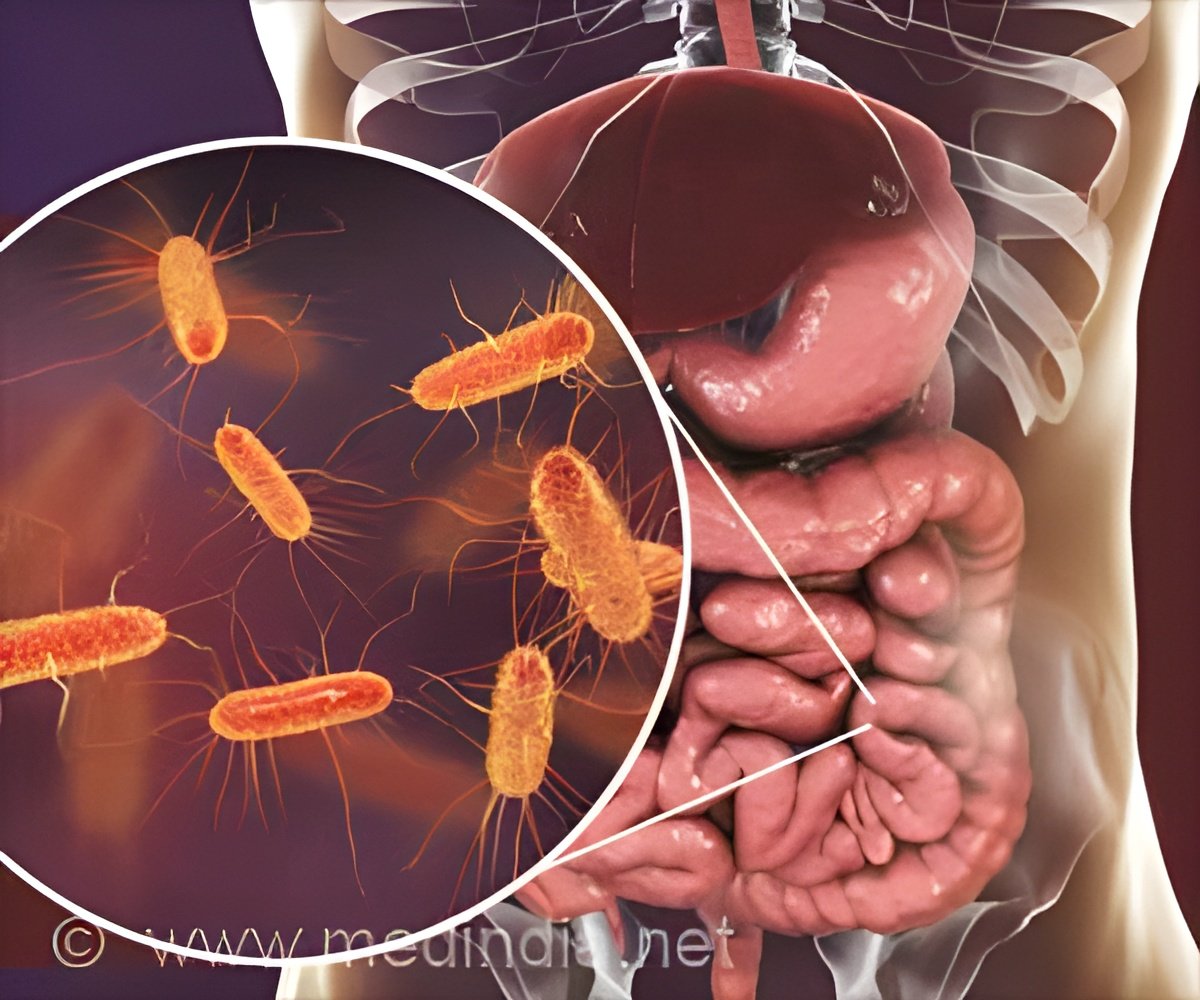Bacteria living in the gut can be used to predict the occurrence of colorectal cancer (CRC), reveals a new study.

‘Bacteria living in the gut can be used to predict the incidence of colorectal cancer (CRC).’
Read More..




Research by an international team of scientists including Brazilians has found a link between colorectal cancer and changes in gut microbiota patterns that do not depend on the dietary habits of the populations studied. The discovery paves the way to the development of non-invasive tests capable of predicting the emergence of the disease.Read More..
The study is published in the journal Nature Medicine. Its first author is Andrew Maltez Thomas, who has a PhD in bioinformatics from the University of São Paulo (USP), Brazil. Thomas was supported by São Paulo Research Foundation - FAPESP via a scholarship for a research internship at the University of Trento in Italy.
In one of the largest and most varied surveys ever conducted on the topic, the researchers combined metagenomics, bioinformatics and machine learning (with the use of artificial intelligence) to correlate the occurrence of colorectal cancer with gut microbiota data for 969 people in Canada, China, France, Germany, Japan and the United States.
The findings identified groups of microorganisms associated with colorectal cancer in all the populations studied, and signatures in the microbial metabolism (patterns of metabolites produced by microorganisms) that can be used to predict the occurrence of the disease. The research had two other important outcomes. One is the discovery in the intestines of colorectal cancer patients of a specific species of bacterium which is commonly found in the mouth and airways. The other is a correlation between colorectal cancer and the presence of the gene for a microbial enzyme that degrades choline, an essential vitamin B group nutrient.
The study found higher levels of the bacterial species Fusobacterium nucleatum in colorectal cancer patients than in healthy individuals. This bacterium normally inhabits regions of the mouth, and the acidity of other parts of the gastrointestinal tract was thought to be fatal to it.
Advertisement
The other discovery, a significant presence of the gene for the microbial enzyme choline trimethylamine-lyase (cutC) in fecal samples from colorectal cancer patients, reinforces the possibility of a carcinogenic link between gut microbiota and a fatty diet, indicated by previous research. "When the enzyme cleaves choline, which is abundant in diets containing large amounts of red meat and other fatty foods, it releases acetaldehyde, a well-known carcinogen," Thomas said.
Advertisement
"Our results from 16 species of bacteria were comparable to those from analyses using all species. This is an important step in the development of a simple diagnostic tool that dispenses with the need to sequence the entire microbiota yet has the necessary precision," Thomas said.
Association is not causal link
Research on the links between gut microbiota and human health has grown in the last ten years, but the new study innovates by conceiving of bacteria as markers of the development of disease.
"Markers are typically looked for directly in association with tumor cells. We use a different concept. Our analysis is based on changes in a relatively small set of bacteria in a spectrum of hundreds of bacteria that live in the gut and may indicate the presence of a disease," said Emmanuel Dias-Neto, a researcher at A.C. Camargo Cancer Center's International Research Center (CIPE) and a co-author of the article.
Sequencing of DNA obtained from gut microbiota enabled the researchers to identify the bacteria present in each fecal sample, to measure the quantity of each bacterium, and to identify variants in their genomes that may be linked to different outcomes, such as a heightened risk of colorectal cancer.
It should be stressed, however, that the study did not show that alterations in gut microbiota cause colorectal cancer.
"We detected an association, but that doesn't necessarily imply a causal link. The question is whether specific bacteria can cause cancer or cancer creates a different environment in the colorectal duct and thereby favors certain bacteria over others. We don't yet have an answer, which would be fundamental for the results of the research described in the article to help develop therapies to treat colorectal cancer," said João Carlos Setubal, Full Professor in the University of São Paulo's Biochemistry Department, coordinator of the same university's Interunit Graduate Program in Bioinformatics, and also a co-author of the article. Setubal and Dias-Neto supervised Thomas's PhD research.
Computational analysis
According to the researchers, this may be the largest-ever study of colorectal cancer based on data from fecal samples and such diverse populations. The group analyzed data from five public studies and two other studies by researchers at the University of Trento.
With the data from these seven studies they were able to identify enzymes and bacteria, and to work out how gut microbiota can predict the development of colorectal cancer. They used data from two other studies with 200 samples to validate their findings.
"DNA sequencing of the samples, which required distinguishing between microbiota DNA and human DNA, was a means of identifying and quantifying the species of microorganisms and their genes present in the samples," Thomas said. "We extracted DNA from the fecal samples and sequenced it. We then used computational methods to analyze the data. As a result we were able to identify and quantify the species and gene abundance."
Because the data came from different studies, the researchers used sophisticated statistical methods to analyze them as an ensemble.
"We used meta-analytical statistical methods and machine learning techniques to find out how predictive the results were," Thomas said.
The findings were validated by Nicola Segata, a computational biologist at the University of Trento and supervisor abroad for the project, and reinforced by another study performed at the European Molecular Biology Laboratory (EMBL) in Germany on the links between gut microbiome and cancer. An article on the EMBL study is published in the same issue of Nature Medicine.
"While preparing the articles, we exchanged data and information with the other group in a partnership that proved highly important to reinforce our findings. Although we used machine learning techniques and different statistical methods, we arrived at the same conclusion that the gut microbiome can predict the presence of colorectal cancer in different populations and studies," Thomas said.
Source-Eurekalert















